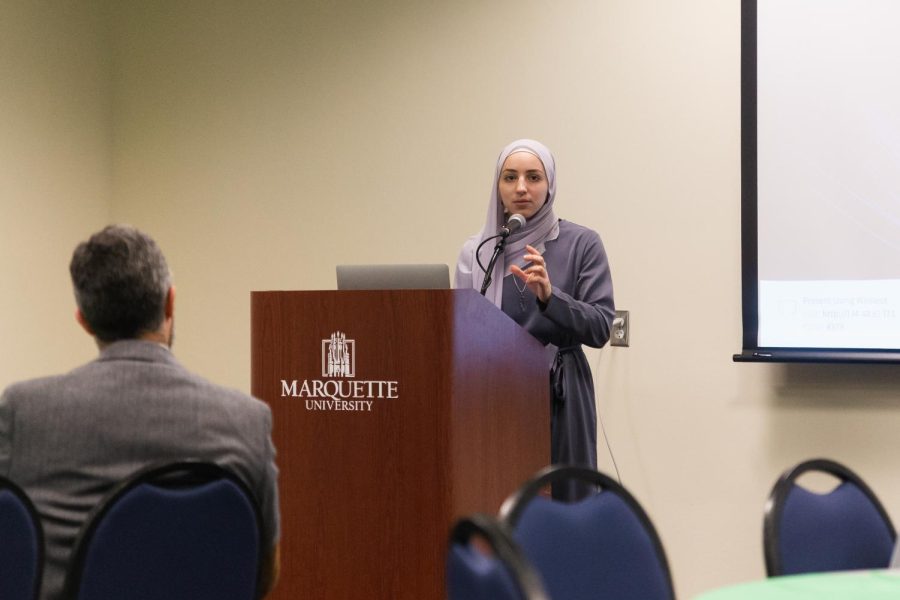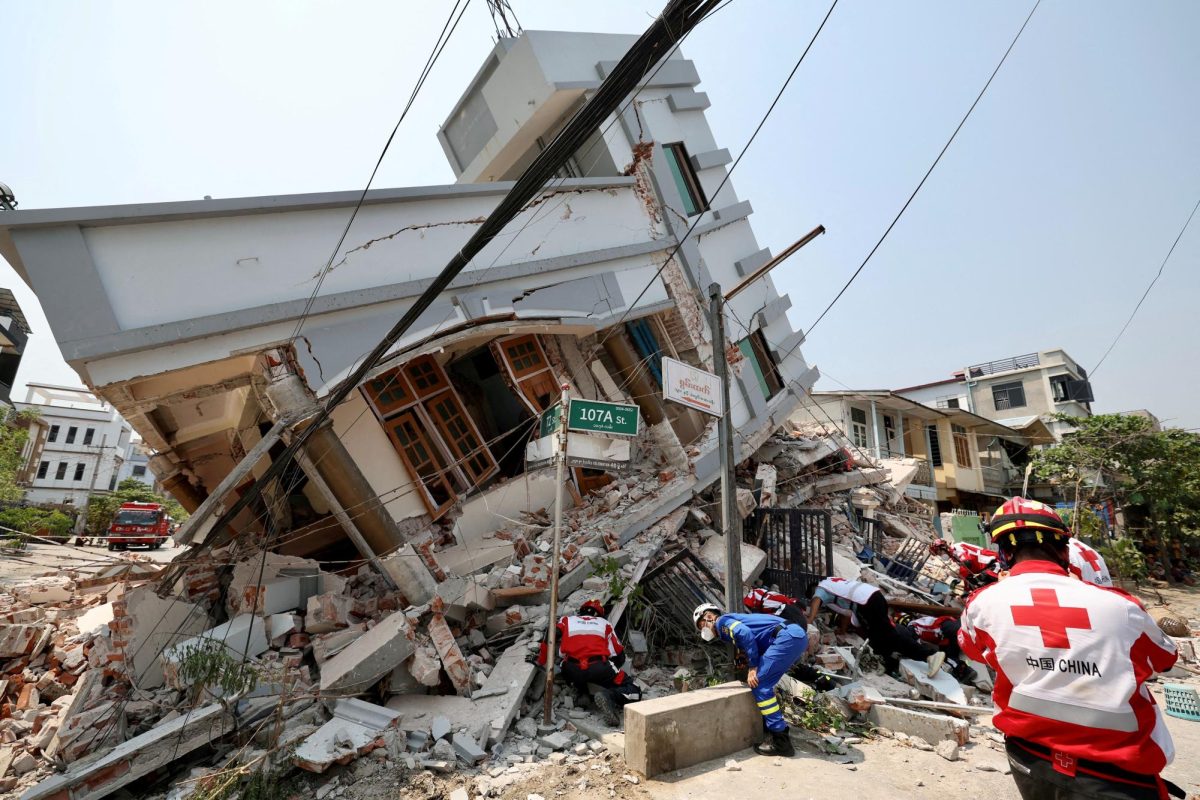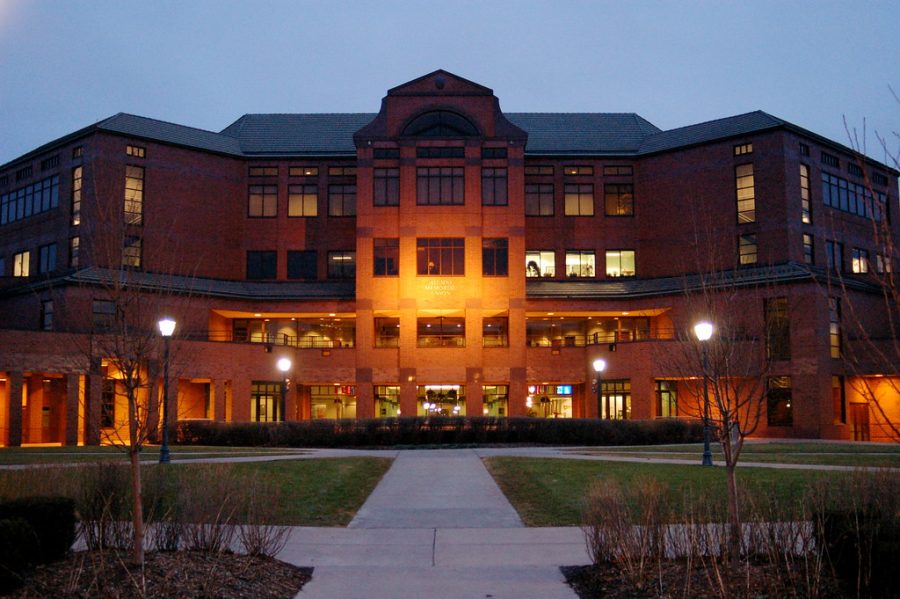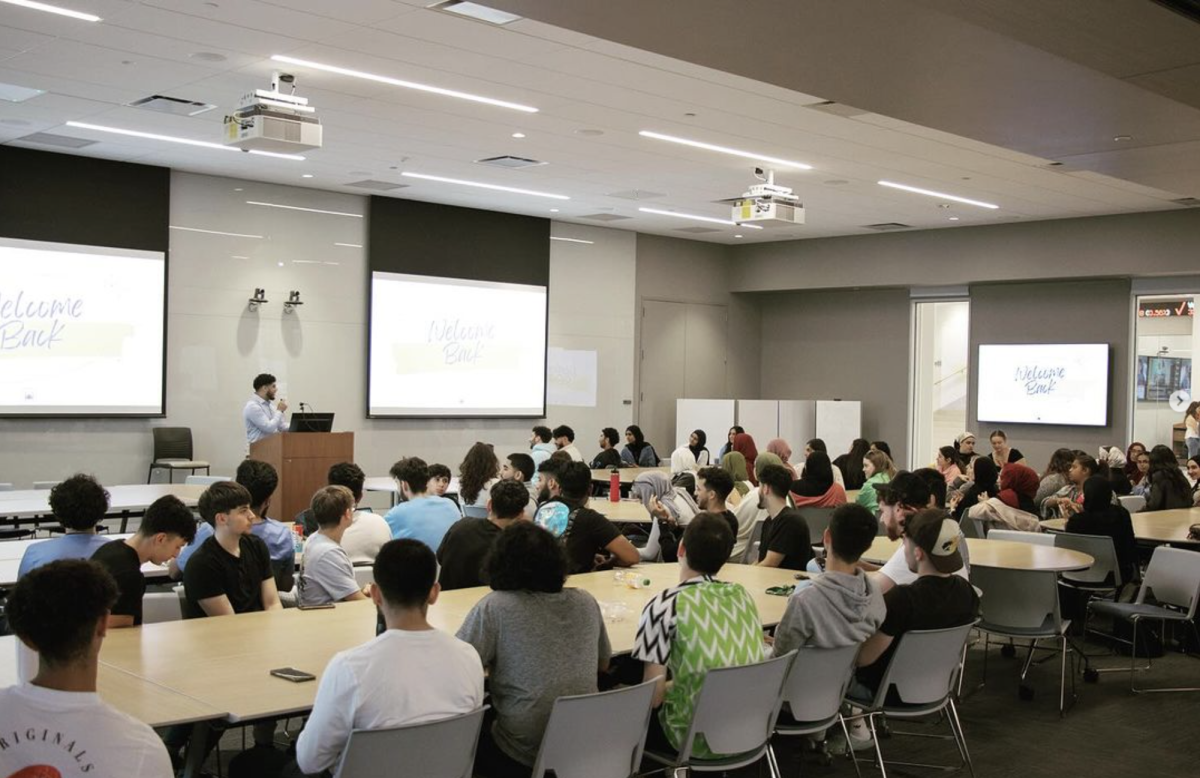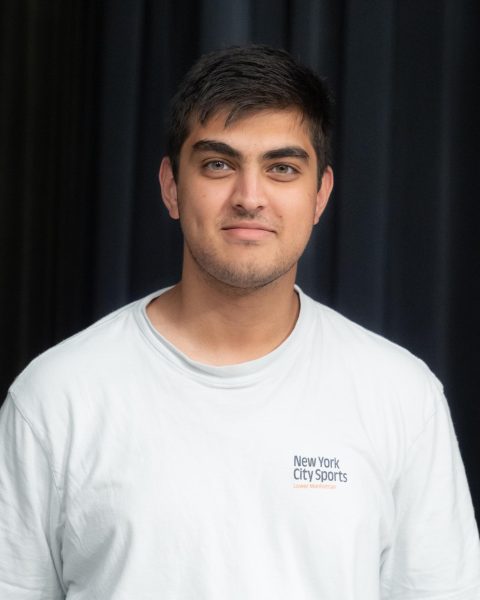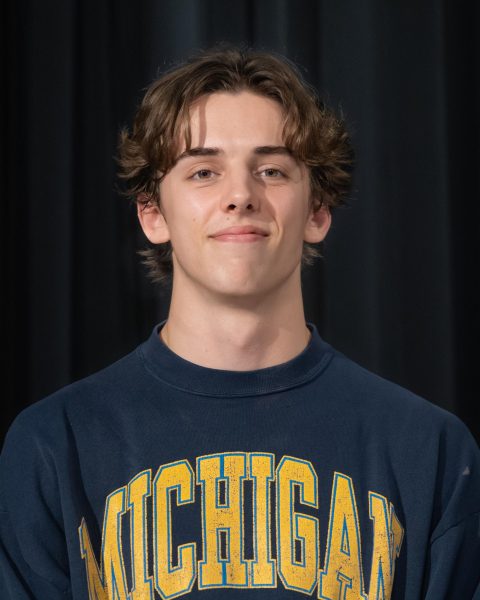The Muslim Students Association hosted an event to bring awareness to the earthquakes that occurred within Syria and work to be able to fundraise toward the relief efforts on the ground. Last Friday’s event presented the lives of those suffering on the ground in Syria, and the struggles many face when it comes to receiving aid in the region.
In the past two weeks, there were two earthquakes of high magnitude of 7.8 and 6.3 that hit Syria, Turkey and Lebanon— affecting many families.
“Overnight and unexpectedly people’s lives were changed forever,” Leen Mortada, a junior in the College of Arts & Sciences, said.
The United Nations High Commissions for Refugees, reported that the two earthquakes that took place on Feb. 6, killed over 4,500 individuals and left 8,300 injured in Syria. Over 11,000 people have become homeless due to the destruction of buildings.
During the event, Dr. Mohammad Eyman Mortada, a physician in the Milwaukee area and a board member of IMI Zaynab, highlighted the organization he founded in 2021 with other physicians, IMI Zaynab. The organization provides resources such as food, tents, clothes and medical supplies for those suffering in Syria.
Mohammad Eyman said that people are forced to live in tents during the cold winter after the recent destructions. He said that the people are lucky that others have opened their homes, shelters, schools, church and other existing infrastructure to accommodate those who have lost their homes.
“The most shocking part is how devastating the impacts were and how little people interacted with them. The sanctions were not all lifted, and [the Syrian] government took no extra precautions to help the people of Syria,” Abdallah Qasem, a sophomore in the College of Health Sciences, said.
Mohammad Eyman said that the due to the sanctions in place, IMI Zaynab needs to use loopholes to work around these issues. He said that direct capital cannot be sent to Syria, and with the lack of trustworthy organizations on the ground, it is hard to send direct efforts.
These sanctions were placed by certain nations and groups in order to prevent the Syrian government from exercising violence on their citizens and to bring political reform in the nation. On Feb. 9, the United States Department of Treasury lifted some sanctions off of Syria for a 180-day temporary order.
“Unlike Turkey, Syria doesn’t have planes flying in, cranes being brought, and floods of available food, clothes and medical supplies. Instead, everything must go through a slower process where both the United States and Syrian government must approve of the aid being provided,” Leen said.
Instead, organizations like IMI Zaynab send resources to other nations that are not under the sanctions, and from there, work to distribute the needed items. Lawyers screen every step of the process, whether that be donors, the equipment sent, or the individuals working on the ground. This allows humanitarian support to continue under the rules of the sanction.
“I believe that this fundraiser and awareness is my duty first as a human and second as a leader on campus. My hope for this event wasn’t to change anyone’s mind necessarily but to enlighten those about what is happening, build empathy for the cause, and make people aware of the projects they can get involved in to help those in Syria,” Leen said.
Qasem said that he feels that there is hope when it comes to the recent crisis.
“I have seen a few fundraiser events going on, but I wish it would be more. I think it’s awesome that there is a lot of people very passionate about helping people suffering in Syria which does give me hope that enough aid is being sent to Syria,” Qasem said.
Leen said that she hopes the Marquette community will come together to support these refugees and, more broadly, those suffering worldwide.
“While the situation seems dismal globally at best, it is beautiful to be a part of a society that come together to help those in need, even strangers,” Leen said.
Qasem said that he is impressed by the unity of the Muslim community during this time and that regardless of a person’s race or background, people are willing to come together for a common cause and help those in need.
“I wish Marquette would have spread more awareness about the tragedy that occurred and potential ways people can help through donations. I feel that a lot of people do not fully understand the negative state Syria is in so spreading awareness would be great for the cause,” Qasem said.
Leen said that while the situation has worked to highlight those willing to take the call to action, it also has worked to showcase those working to make the relief effort more difficult in Syria.
“This is your responsibility, my responsibility to let people know about the path how we can teach people where is the bridge to let them help out brothers and sisters in Syria,” Mohammad Eyman said.
This story was written by Uzair Qhavi. He can be reached at uzair.qhavi@marquette.edu


